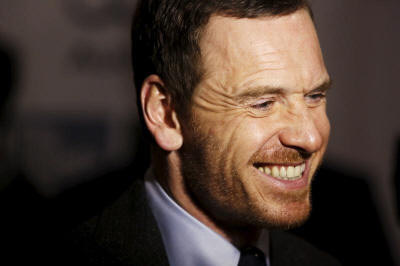|
The phrase sets the tone for Oscar-winning screenwriter Aaron
Sorkin's "Steve Jobs," a dialogue-heavy reimagining of one of
technology's most revered figures in the moments leading up to
three product launches: 1984's Macintosh, 1988's NeXT cube and
1998's iMac.
The film, directed by Oscar winner Danny Boyle and opening in
New York and Los Angeles on Friday and across the U.S. next
week, explores Jobs through four of his key relationships - with
Apple's marketing head Joanna Hoffman (Kate Winslet), fellow
Apple co-founder Steve Wozniak (Seth Rogen), Apple CEO John
Sculley (Jeff Daniels) and Jobs' eldest daughter, Lisa.
Seen across the years, the behind-the-scenes moments aim to shed
light on Jobs the man, whether it's his warm relationship with
"work wife" Hoffman, being a protective older brother-type to
Wozniak or seeking a pat on the back from father-figure Sculley.
Coming four years after Jobs died at age 56 from cancer, the
film is the third film on him, following 2013's "Jobs" starring
Ashton Kutcher and this year's Alex Gibney's documentary "Steve
Jobs: The Man in the Machine."
It looks at the much-revered technology entrepreneur from yet
another angle. Sorkin adapted his screenplay in part from
Pulitzer-winning Walter Isaacson's book: "Steve Jobs."
Introducing Boyle at a Los Angeles screening on Thursday, Sorkin
enthused "you're never going to meet someone with this talent
that has no business being this nice - one of themes we
explore."
Unlike Boyle, the film portrays Jobs as contentious, arrogant,
stubborn, isolated, troubled, charismatic, witty and often
misunderstood.
In heated, passionate and spirited conversations, Jobs is seen
struggling to find a balance between his talents and being a
nice guy. He makes diva-like demands on long-suffering
colleagues for his product launches. He has no qualms about
delivering pointed threats or even rejecting his five-year-old
daughter as she stands in front of him.
The film's structure mirrors Jobs' frenetic energy as it jumps
between the three product launches without actually showing
their debuts, leaping from one fast-paced conversation to
another.
"Steve Jobs" has been well received by critics, with The New
York Times calling it "a rich and potent document of the times."
(Reporting by Piya Sinha-Roy. Editing by Chris Michaud and David
Gregorio)
[© 2015 Thomson Reuters. All rights
reserved.] Copyright 2015 Reuters. All rights reserved. This material may not be published,
broadcast, rewritten or redistributed. |
|




